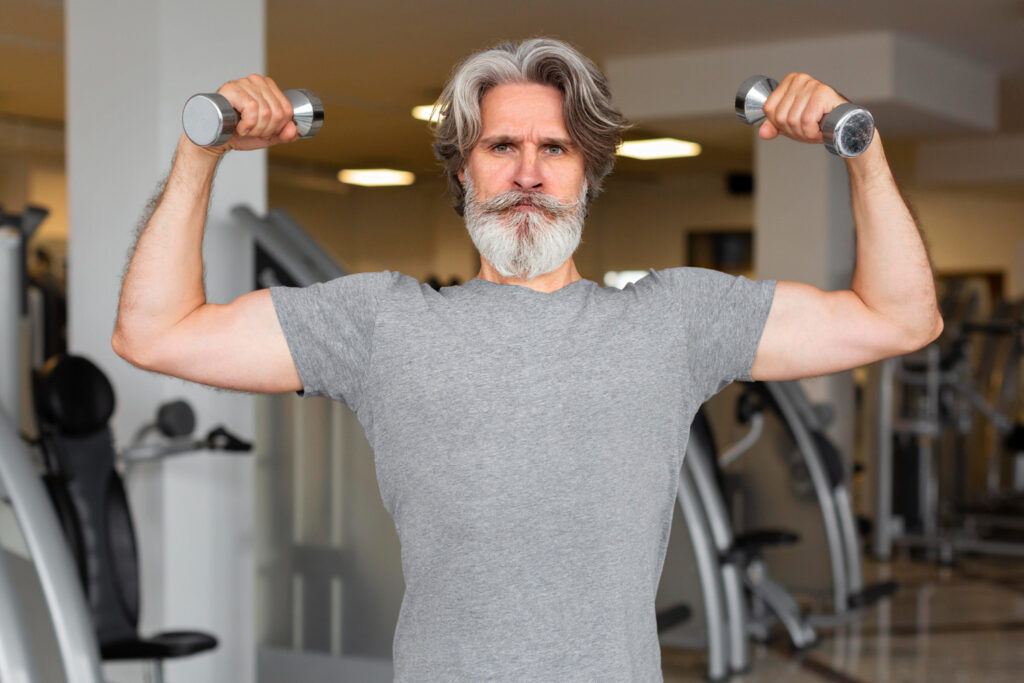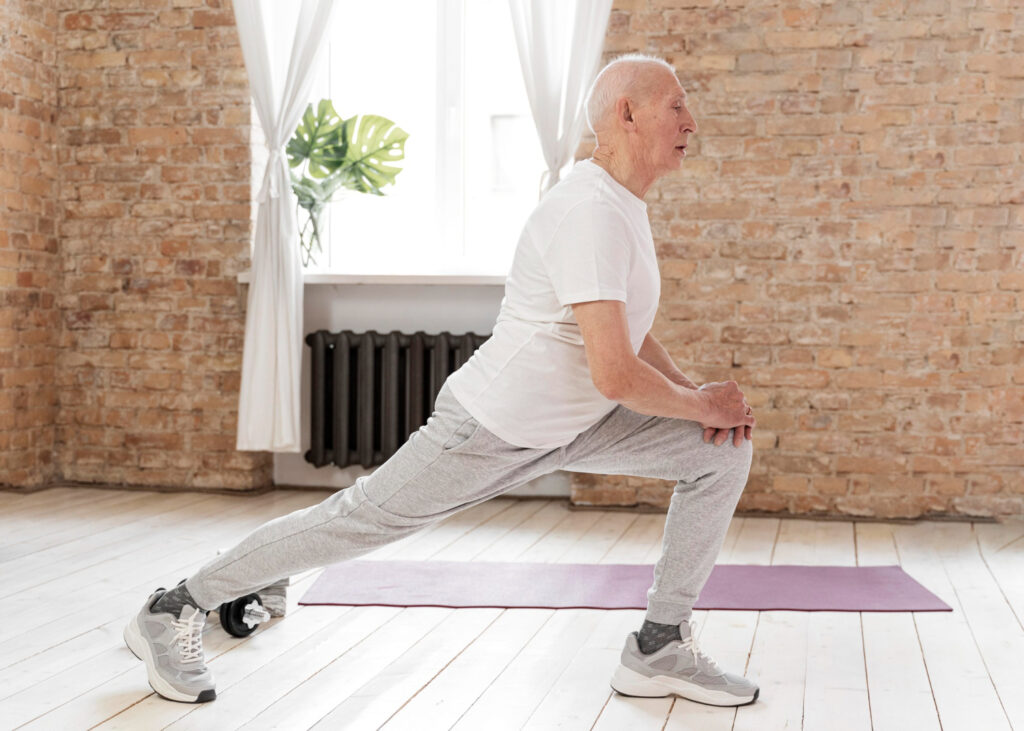Regular exercise is undoubtedly one of the most crucial activities you can engage in to decelerate the aging process and counteract or postpone the inevitable decline in mobility, physical appearance, and overall well-being. However, it is imperative to adopt the appropriate training approach, particularly as you age and possess less margin for error.
As time passes, we must acknowledge that our youthful days in our 20s are fleeting. As our bodies age, the consequences of our mistakes can significantly hinder our health and progress.
Therefore, it is crucial to familiarize yourself with seven detrimental fitness habits that can harm your body before reaching the age of 60. By avoiding these habits, you can safeguard your well-being and ensure a more fruitful journey towards a healthier lifestyle.
If you belong to any of these categories, it is advisable to modify your workout routine accordingly. It is crucial to bear in mind that maintaining a healthy diet rich in fruits, vegetables, and protein, along with getting sufficient sleep and staying well-hydrated, are essential non-exercise factors that contribute to ensuring your fitness and well-being as you age gracefully.
Continue reading to discover the seven fitness habits that can wreak havoc on your body before you reach the age of 60. Additionally, make sure to explore the 7 Strength Training Habits That Can Have Detrimental Effects on Your Body by the time you turn 40.
7 Fitness Habits You Need to Quit
1. Overdoing Cardio

While cardio is excellent for heart health and weight management, excessive amounts of it can have negative effects. Although the majority of individuals do not need to be concerned about excessive cardio, engaging in hours of cardio daily while neglecting other forms of exercise is not ideal for achieving well-rounded, long-term fitness gains at any age.
Achieving balance is crucial. It is recommended to incorporate a combination of cardio, strength training, and flexibility exercises into your routine to optimize your fitness journey.
2. Ignoring Strength Training

Strength training is essential for maintaining muscle tone, balance, bone strength, and overall mobility as you age. Contrary to common misconceptions, strength training is not solely focused on developing bulky muscles. Neglecting strength training can result in muscle imbalances, reduced strength, and an increased vulnerability to osteoporosis.
3. Skipping Mobility Exercises And Stretches

Flexibility and mobility are often overlooked in many fitness routines, yet they play a crucial role in maintaining optimal joint mobility. Neglecting stretching and mobility exercises can result in reduced flexibility, muscle imbalances, and an increased susceptibility to injuries.
To ensure a well-rounded and effective anti-aging fitness program, it is imperative to incorporate activities such as yoga, foam rolling, general stretching, and exercises that engage the full range of motion.
4. Not Allowing Your Body Enough Time To Heal
While it’s important to stay consistent with your exercise routine, it’s equally important to give your body time to rest and recover. Overtraining can result in various issues, such as decreased immune function, hormonal imbalances, an increased risk of injuries, and a loss of motivation.
To ensure you fully recover and reap the benefits of your workout program, I generally recommend taking a full day of rest after every two days of exercising. This balanced approach allows your body to rejuvenate and optimize its performance.
5. Ignoring Pain

While it is normal to experience some discomfort during resistance training or other intense exercises, experiencing pain is a definite indication that something is amiss within your body. Disregarding pain can result in severe injuries and long-lasting damage.
If you feel any discomfort in your knee or lower back while performing a specific exercise, it is crucial to halt immediately, assess your form, and if the pain persists, seek guidance from a licensed medical professional.
You Can Also Read: Optimize Your Gut Health: 7 Best Fermented Foods Include in Your Diet
6. Not Drinking Enough Water

Water is essential for our bodies to regulate temperature, transport nutrients, and maintain joint health. Surprisingly, a significant number of individuals fail to consume an adequate amount of water on a daily basis.
The immediate consequences of dehydration encompass reduced energy and concentration, constipation, dizziness, and various forms of discomfort. Prolonged dehydration can inflict severe harm upon your body, leading to complications with your kidneys and potentially even escalating mortality rates.
If you frequently perspire during exercise, it is crucial to replenish lost fluids by consuming water or an electrolyte-rich beverage, particularly if your diet tends to be low in sodium.
7. Overemphasizing Isolation Exercises

If you engage in resistance training, it is crucial to prioritize compound movements that target multiple muscle groups. Isolation exercises, on the other hand, can prove advantageous for body sculpting and rehabilitation objectives.
However, placing excessive emphasis on isolation exercises at the expense of compound exercises can result in muscle imbalances and deprive you of the numerous advantages derived from functional movements such as squats, deadlifts, pull-ups, and overhead presses. To ensure a well-rounded workout routine, it is advisable to incorporate three to four compound exercises and limit isolation exercises to one or two as a general guideline.
